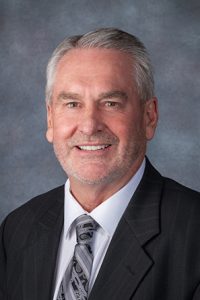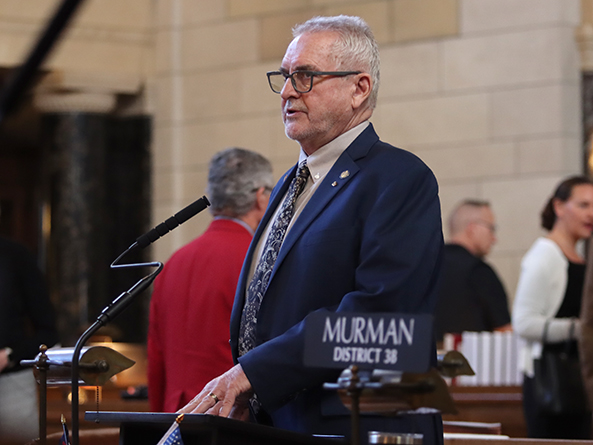School funding changes advanced
A proposal that would terminate the Tax Equity and Educational Opportunities Support Act, or TEEOSA, and establish a new school funding system earned first-round approval from lawmakers April 3.

As introduced by Glenvil Sen. Dave Murman, LB1331 would modify language regarding State Board of Education policies on truancy and clarify language related to the State Department of Education’s powers and duties. An Education Committee amendment, adopted 47-0, gutted the bill and replaced it with a separate proposal containing provisions of Omaha Sen. Justin Wayne’s LB1231.
Murman, the chairperson of the Education Committee, said LB1331 initially was a cleanup bill for the state Department of Education. It became apparent, however, that establishing a new school funding system was of greater importance this session, he said.
“This is a critical investment in our schools and more importantly for our students,” Murman said.
As amended, LB1331 is a companion bill to Elkhorn Sen. Lou Ann Linehan’s LB388. The two bills aim to generate state revenue to fund additional property tax relief by implementing the Nebraska Education Formula and increasing yearly per-student foundation aid from $1,500 to $3,000.
The increase in foundation aid would be funded by discontinuing the state’s refundable income tax credit against school taxes paid, established under LB1107 in 2020, and reallocating those funds to increase foundation aid for public schools.
Adams Sen. Myron Dorn said many property owners are not claiming the tax credit because they are unaware of it or don’t understand how it works. As a result, he said, nearly 50% of the credits have gone unclaimed.
Among other provisions, LB1331 also would prohibit school districts from adopting budgets that surpass certain allowable reserve percentages. The percentages would differ based on the district’s average daily membership and the department would be responsible for annually determining and certifying each district’s specific allowable reserve percentage.
Linehan supported the bill, saying TEEOSA has long been a problem. She said equalization aid — calculated by subtracting needs from available local property tax revenue — has disproportionately affected rural school districts that contain large amounts of agricultural land. In addition, she said, recent property valuation increases in urban and suburban areas have decreased foundation aid for those districts.
Bennington Sen. Wendy DeBoer raised concerns about eliminating equalization aid, which school districts with the greatest need receive. Foundation aid, however, goes to schools regardless of need, she said, and is less flexible in addressing the needs of individual districts.
Plymouth Sen. Tom Brandt supported the bill, saying it would significantly increase funding for schools in his district while simplifying property tax relief for Nebraskans.
“This bill is about property tax relief,” he said. “This is part of a solid solution when combined with LB388.”
Seward Sen. Jana Hughes supported “front loading” the income tax funding directly to schools to provide property tax relief without making taxpayers claim the tax credit.
“Property owners pay property taxes every year, and it just does not make sense for the government to take our money, hold it for nine months out of the year, and then we have to ask for it back,” she said.
A motion from Omaha Sen. Machaela Cavanaugh to indefinitely postpone the bill failed 0-36.
After adopting the committee amendment, senators voted 45-0 to advance LB1331 to select file.


